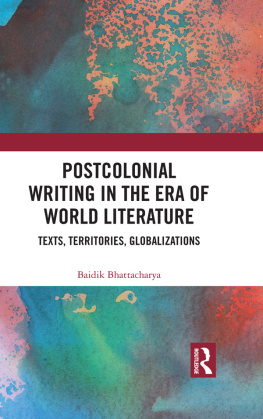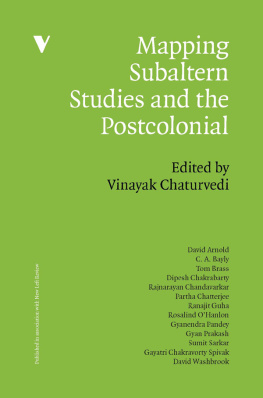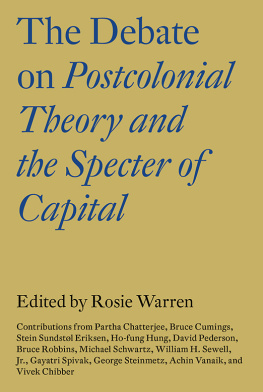First published 2016
by Routledge
2 Park Square, Milton Park, Abingdon, Oxon OX14 4RN
and by Routledge
711 Third Avenue, New York, NY 10017
Routledge is an imprint of the Taylor & Francis Group, an informa business
2016 Bibhash Choudhury
The right of Bibhash Choudhury to be identified as author of this work has been asserted by him in accordance with sections 77 and 78 of the Copyright, Designs and Patents Act 1988.
All rights reserved. No part of this book may be reprinted or reproduced or utilised in any form or by any electronic, mechanical, or other means, now known or hereafter invented, including photocopying and recording, or in any information storage or retrieval system, without permission in writing from the publishers.
Trademark notice: Product or corporate names may be trademarks or registered trademarks, and are used only for identification and explanation without intent to infringe.
British Library Cataloguing in Publication Data
A catalogue record for this book is available from the British Library
Library of Congress Cataloging-in-Publication Data
A catalog record has been requested for this book.
ISBN: 978-1-138-18192-2 (hbk)
ISBN: 978-1-315-64667-1 (ebk)
Typeset in Sabon
by Apex CoVantage, LLC

This is a book of readings. What we today recognize as postcolonial theory has a rich historical and cultural lineage. The impact of colonial experience has been approached, studied, critiqued and engaged with from a variety of reading positions. Over the several decades of the twentieth century when decolonization affected the contours of international politics, the emergence of new nation states from the shadow of colonial rule facilitated newer ways of reading that experience. It would be naive to say that postcolonialism surfaced only with the decolonization, for questions regarding the nature and objective of colonial regimes go back to a much remoter past. But it is now acknowledged that the discipline of postcolonialism owes much to the cultivation and circulation of critical discourses which asked questions in sustained form in different locations over a considerable period of time. Texts which have shaped and contributed to the development of postcolonial studies, especially those which have facilitated the traffic of the discipline into newer frontiers, are taken up for analysis here. Each text is read closely, and its most striking features are placed in context. It is from such an imperative that this book derives its title: Reading Postcolonial Theory: Key Texts in Context .
My plan in the book is to keep the chapters independent of each other. My reason for that is twofold: first, some of the texts, such as Memmis The Colonizer and the Colonized or Fanons The Wretched of the Earth , for instance, present positions that have been seen to generate extensive debates on both sides, and to refer to the critical receptions of these texts would expand the discussion beyond the text itself. For instance, in Robert Youngs White Mythologies there are three chapters on Edward Said, Homi Bhabha and Gayatri Chakravorty Spivak, and these three texts form part of what I have in my schedule as well. I had the option of cross-referring these thinkers when I read them, but I felt that doing so would take away from the argument what all these four texts focus on individually. My plan, therefore, is to locate each text in the context of its own argument, so that the reader would be able to see it as a response to how they emerged and what they deal with. I have tried to keep my discussion footnote-free so that the arguments of the texts under discussion stand clear for the reader to access. This is a position that is fraught with insistent difficulties, for one could argue that texts cannot just stand by themselves; while I am not pushing the New Critical argument of the text being autotelic or contextually disengaged from the circumstances of its production, my aim is to present an uncluttered analysis that responds to each of these seminal texts in the contexts of their situation as texts in the history of postcolonial theory. Readings of postcolonial theory often presume that the reader has sufficient knowledge of the texts, based on which the critical roadmap in a given book is framed. I am here trying to present the texts within their specific contexts, and in locating these texts as crucial witnesses to the development of postcolonial theory, my readings of these books would open up the lines of thought that have come from multiple directions, in different ways, and have foregrounded issues that have converged, but are not necessarily the same. A reader would, then, I believe, be able to see how an Ashis Nandy or a Paul Carter has argued from positions of great difference but has still responded to the experience and impact of colonialism. A survey of the different texts would then facilitate a critical frame through which these seminal texts in the history of postcolonial studies can be approached or responded to. The second reason for this arrangement is to propose a mode of reading a text that draws on the advantage of close reading, but one that would certainly not be closed in terms of how a text can be approached and read even today when theory seems to have pushed the limits and appears to be inhabiting spaces that are not directly related to one another. At the same time, this is not an argument for a kind of back-to-the-text theory, or a context-free analysis. One of my objectives here is to demystify perceptions about these texts, many of which are held on the basis of certain circulating free-floats, consolidated through usage and repetition, one instance of it being the highlighting of Saids thesis in Orientalism as a one-off argument against the West and what it has done historically. What I try to do in my reading of Saids book is to see his analysis of Orientalist discourse not as a given that he makes use of to frame his argument but as one that is also based on his crucial reading of the philological inheritance of imperialism as well as the role played by forms of travel narratives in such formations. The overarching postcolonial imperative and the many directions its theoretical articulation has taken over the past several decades would thus emerge as the texts are read for what they proposed within their specific argumentative frames. I believe such an addressing of the critical circumstances of each of these texts would provide the reader a perspective on how they have come to form what we now recognize as and call postcolonial theory.
The reasons for inclusion of the texts for discussion, and the exclusion of others, are primarily, one, the importance and impact of the chosen book for the discourse of postcolonial theory and, two, the different insight it has brought into the discipline. In effect, what is key in my arrangement of things may not be for another reader. But, at the same time, there is considerable agreement that the texts analysed here are those that have come to occupy place of importance in the history of the discipline. All the books, as will be evident during the course of discussion, are not the same, nor do they follow uniform critical priorities. That is only to be expected for a discipline that has grown and expanded with the accumulation of newer insights not only in the field but also in other areas. I place each book in the contexts of its production and then look at the ways in which the positions each book has taken have impacted our reading over time. The book will facilitate critical engagements which further the imperatives of postcolonialism in ways that emerge from the texts taken up for study, that is the objective of Reading Postcolonial Theory , and a move in that direction will then be the reward for an exercise such as this.







